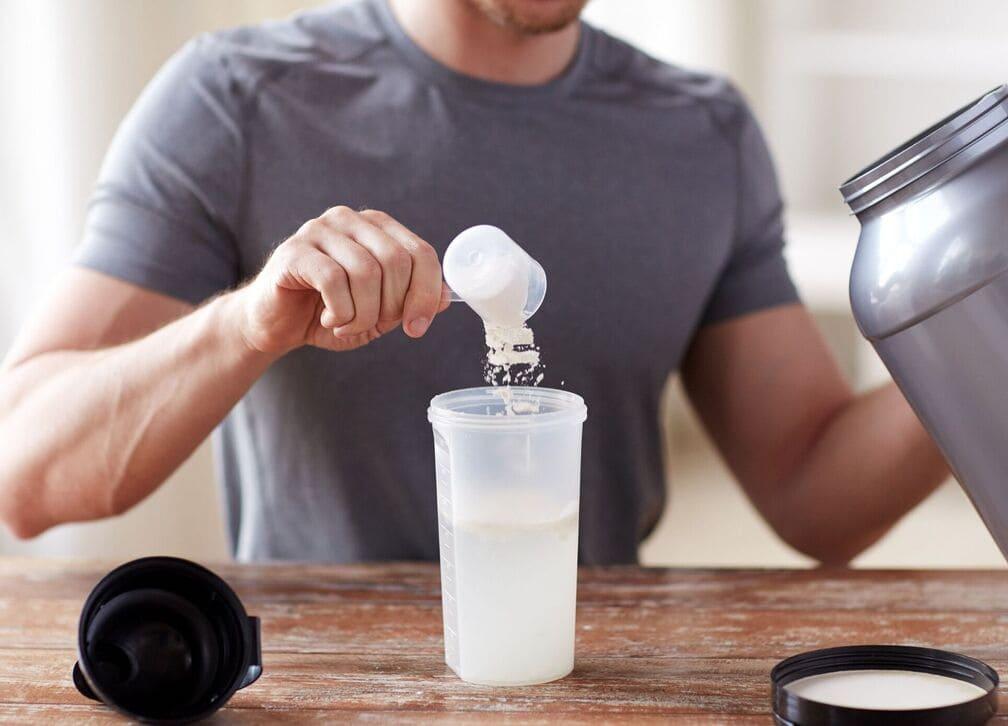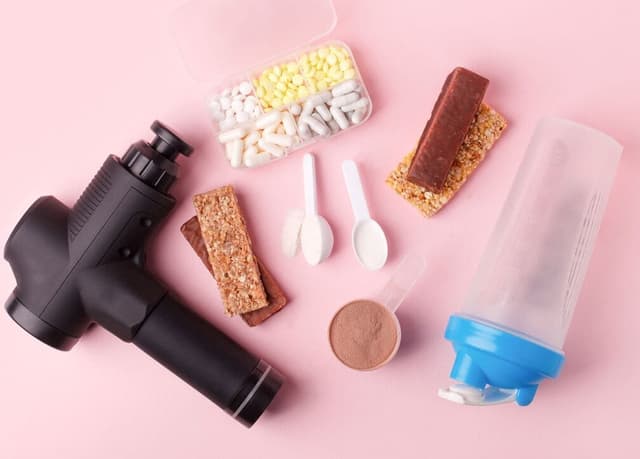Creatine as a Recovery Aid: New Insights from Sports Nutrition Experts

April 3, 2024
As athletes and health enthusiasts continue to explore effective ways to enhance performance and recovery, creatine has emerged as a key player in the sports nutrition arena. Traditionally recognized for its role in boosting strength and power during high-intensity exercises, recent insights suggest that creatine may also serve as a potent recovery aid. Understanding how creatine works, its optimal dosage, and its benefits for recovery can help athletes maximize their training efforts and improve overall performance.
What is Creatine and Why it Matters
Creatine is a naturally occurring compound found in small amounts in certain foods like red meat and fish, and it is also synthesized in the body from amino acids. It plays a vital role in energy production, particularly during short bursts of intense activity. When stored in muscle cells as phosphocreatine, it helps regenerate adenosine triphosphate (ATP), the primary energy currency of our cells.
Importance of Creatine for Athletes
For athletes, maintaining high energy levels during training and competition is crucial. Creatine supplementation has been shown to:
- Increase muscle mass
- Enhance strength and power output
- Improve performance in high-intensity exercises
- Support faster recovery between sets and workouts
However, its potential benefits do not stop at performance enhancement; recent studies indicate that creatine may also play a significant role in recovery.
How Creatine Supports Recovery
Reducing Muscle Damage
One of the critical ways creatine aids recovery is by reducing muscle damage. Intense workouts can cause microscopic tears in muscle fibers, leading to delayed onset muscle soreness (DOMS). Creatine has been shown to mitigate these effects, helping athletes bounce back faster. By promoting hydration within muscle cells and reducing inflammation, creatine aids in recovery after strenuous exercise.
Enhancing Glycogen Resynthesis
After intense workouts, the body needs to replenish its glycogen stores for energy. Research indicates that creatine can enhance glycogen resynthesis, particularly when combined with carbohydrates. This means that athletes who incorporate creatine into their post-workout nutrition may recover more effectively and be ready for their next training session sooner.
Supporting Cellular Repair
Creatine has also been shown to facilitate cellular repair processes. It may stimulate the production of satellite cells, which play a critical role in muscle recovery and growth. By promoting the regeneration of muscle tissue, creatine helps athletes recover more quickly and effectively from their training regimens.
Improving Hydration
Proper hydration is essential for optimal recovery, and creatine can help with this as well. It has osmotic properties, meaning it draws water into the muscle cells, enhancing their hydration status. Well-hydrated muscles recover faster, perform better, and are less prone to injury.
Scientific Studies Supporting Creatine as a Recovery Aid
Our Top Recommendations

Optimum Nutrition Micronized Creatine Monohydrate Powder
Micronized for easy mixing, supports muscle growth and endurance.
See on Amazon$0.35 per 5g serving

Nutricost Creatine Monohydrate Micronized Powder
Third-party tested, non-GMO, 5g of pure creatine per serving.
See on Amazon$0.2 per 5g serving

NSF Certified, supports muscle power and recovery.
See on Amazon$0.46 per 5g serving

ProMix Creatine Monohydrate Powder
Micronized, additive-free, ideal for performance and recovery.
See on Amazon$0.36 per 5g serving

NOW Foods Sports Nutrition Unflavored
100% pure creatine, GMP certified, boosts strength and endurance.
See on Amazon$0.2 per 5g serving
Study 1: Creatine and Muscle Damage
A study published in the Journal of Strength and Conditioning Research explored the effects of creatine on muscle damage following resistance training. Researchers found that athletes who supplemented with creatine experienced less muscle damage and soreness compared to those who did not. This suggests that creatine can be a valuable tool for recovery post-training.
Study 2: Glycogen Resynthesis
Another research article in the American Journal of Clinical Nutrition examined how creatine supplementation influenced glycogen resynthesis after exhaustive exercise. The results showed that participants who consumed creatine alongside carbohydrates had significantly higher glycogen levels compared to those who only ingested carbohydrates. This finding emphasizes the importance of creatine in replenishing energy stores for athletes.
Study 3: Creatine and Hydration
A review published in the Journal of the International Society of Sports Nutrition highlighted the hydration effects of creatine. The review concluded that creatine supplementation can lead to improved hydration status in muscle tissue, which is essential for recovery and overall performance.
Recommended Creatine Dosage
Loading Phase vs. Maintenance Phase
To experience the benefits of creatine, athletes often follow a loading and maintenance phase. The typical loading phase consists of taking around 20 grams of creatine per day for five to seven days, divided into four servings throughout the day. This is then followed by a maintenance dose of 3-5 grams per day.
Individual Factors to Consider
It’s important to note that individual responses to creatine can vary based on factors such as:
- Body weight
- Training intensity
- Overall diet
Athletes should consider these factors when determining their creatine dosage. Consulting with a sports nutritionist or healthcare provider can provide personalized guidance.
Conclusion
Creatine has established itself as a powerhouse in the realm of sports nutrition, not just for enhancing performance but also for supporting recovery. By reducing muscle damage, enhancing glycogen resynthesis, and improving hydration, creatine can play a pivotal role in helping athletes recover faster and train harder.
If you're looking to optimize your recovery strategies, consider incorporating creatine into your supplementation routine. As always, consult with a healthcare or nutrition professional to ensure it aligns with your specific needs and goals.
For more insights on nutrition and performance, explore our related content or subscribe to stay updated on the latest findings in sports science!






